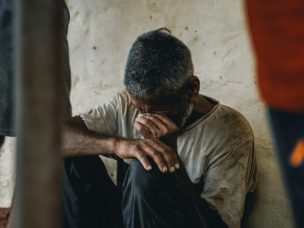Adverse childhood experiences expose sexual and gender minorities, particularly bisexual individuals, to an increased risk of substance use.
The detrimental role of adverse childhood experiences (ACEs) on overall health has been widely studied. The impact is more severe in adult and gender minority groups (SGMs), specifically in those with a negative response from family, who are more vulnerable and likely to report such experiences. A recent study published in the journal Drug and Alcohol Dependence Reports reviewed the relationship between substance use, gender, and sexual minority populations. The investigation adhered to the established protocol and utilized the Preferred Reporting Items for Systematic Review and Meta-Analysis Extension for Scoping Reviews (PRISMA-ScR). The pooled results of twenty recruited studies suggest that exposure to ACEs is positively correlated with substance use in these minority groups.
Adverse Childhood Experiences Linked to Substance Abuse
There is an overall positive correlation between substance use and ACEs. However, it was noted that specific ACEs were related to certain substance use outcomes but not to others. For example, childhood physical abuse (CPA) and substance overuse at home were more likely to be associated with increased chances of current cigarette smoking, whereas emotional abuse and food insecurity didn’t make much of a difference. The included studies also investigated specific populations and found that they may be more vulnerable to substance use due to higher ACE exposure. For instance, transgender women of color living with HIV who had a history of childhood sexual abuse were ten times more likely to use drugs and to use more drugs than those without a history of sexual abuse.
Adverse Childhood Experiences and the Grave Issue of Substance Misuse
ACEs and the specific substance outcome investigated showed a complex interaction of multiple factors. The included studies reported that childhood victimization and adult victimization had higher chances of leading to hazardous drinking patterns than childhood victimization alone. Similarly, forceful teenage penetration and touching were related to more stimulant misuse and alcohol problems. However, it must be noted that the type of victim and victimization played a vital role in the pattern of substance use. For example, a small population of transgender women with high attachment anxiety levels reportedly faced more problems with substance use, particularly if they had a history of childhood sexual abuse.
Adverse Childhood Experiences Linked to Comorbid Substance Use and Mental Health Disorders
Reportedly, there is a positive correlation between ACEs, mental health disorders, and comorbid substance use in individuals belonging to SGMs. A study reported an increased risk for substance use disorder, mostly in bisexual women exposed to sexual abuse. Similarly, some studies found a link between specific ACEs and substance use in bisexual and transgender men, but it is noteworthy to highlight that these associations disappeared when factors like education, income, and race were considered.
As the impact of ACEs on substance use is massive, there’s a strong need for better-powered research, specifically for the diverse SGM population.
Source :
Dowling, B. A., Grigsby, T. J., Ziomek, G. J., & Schnarrs, P. W. (2023). Substance Use Outcomes For Sexual and Gender Minority Adults With a History of Adverse Childhood Experiences: A Scoping Review. Drug and Alcohol Dependence, 6, 100129. https://doi.org/10.1016/j.dadr.2022.100129









